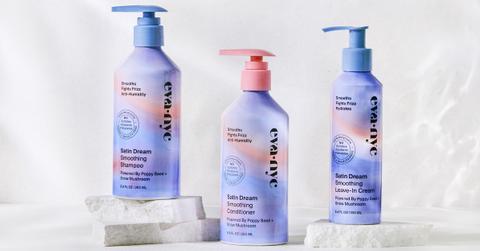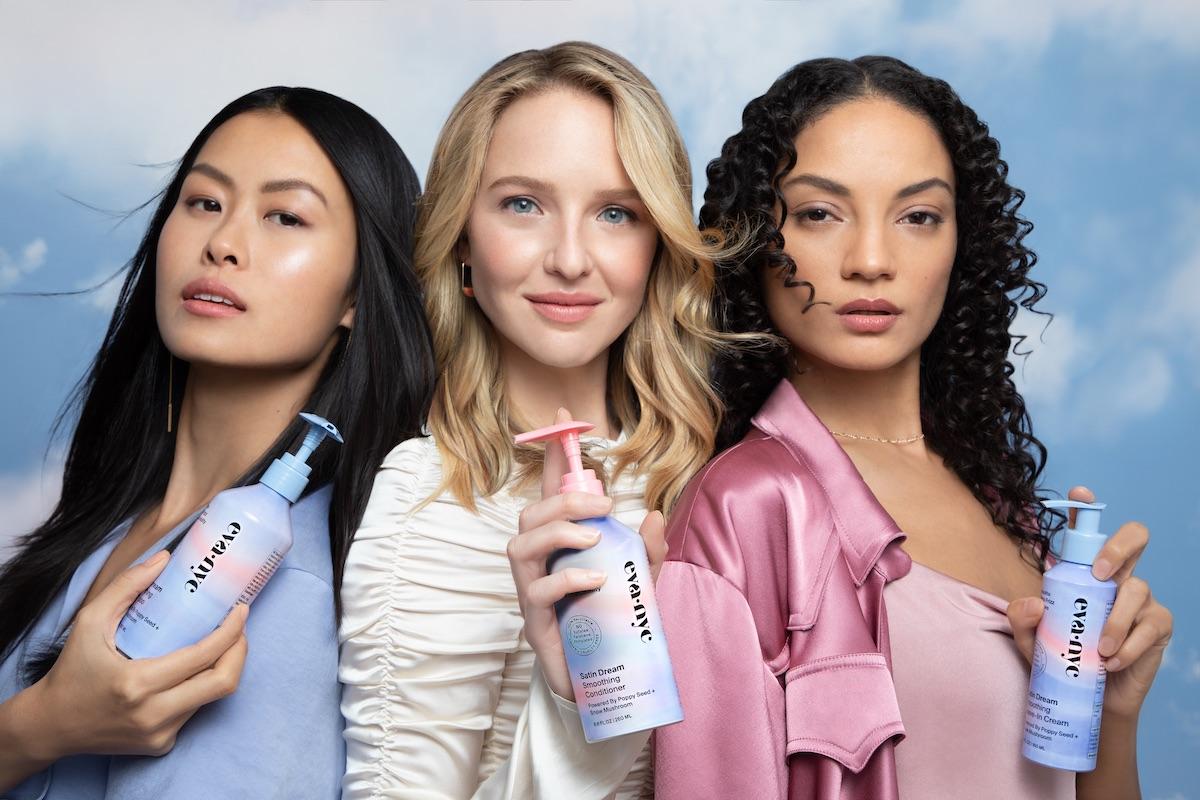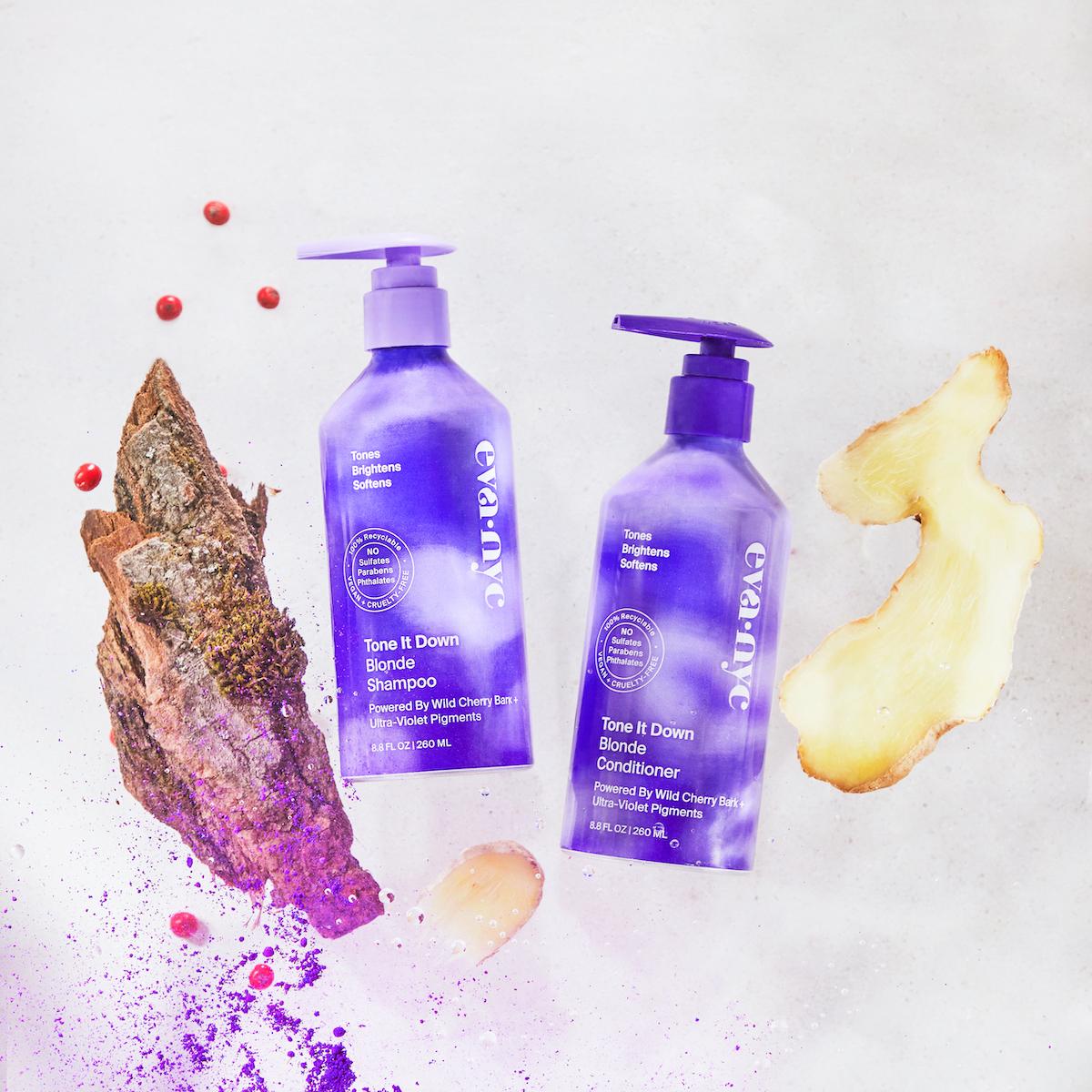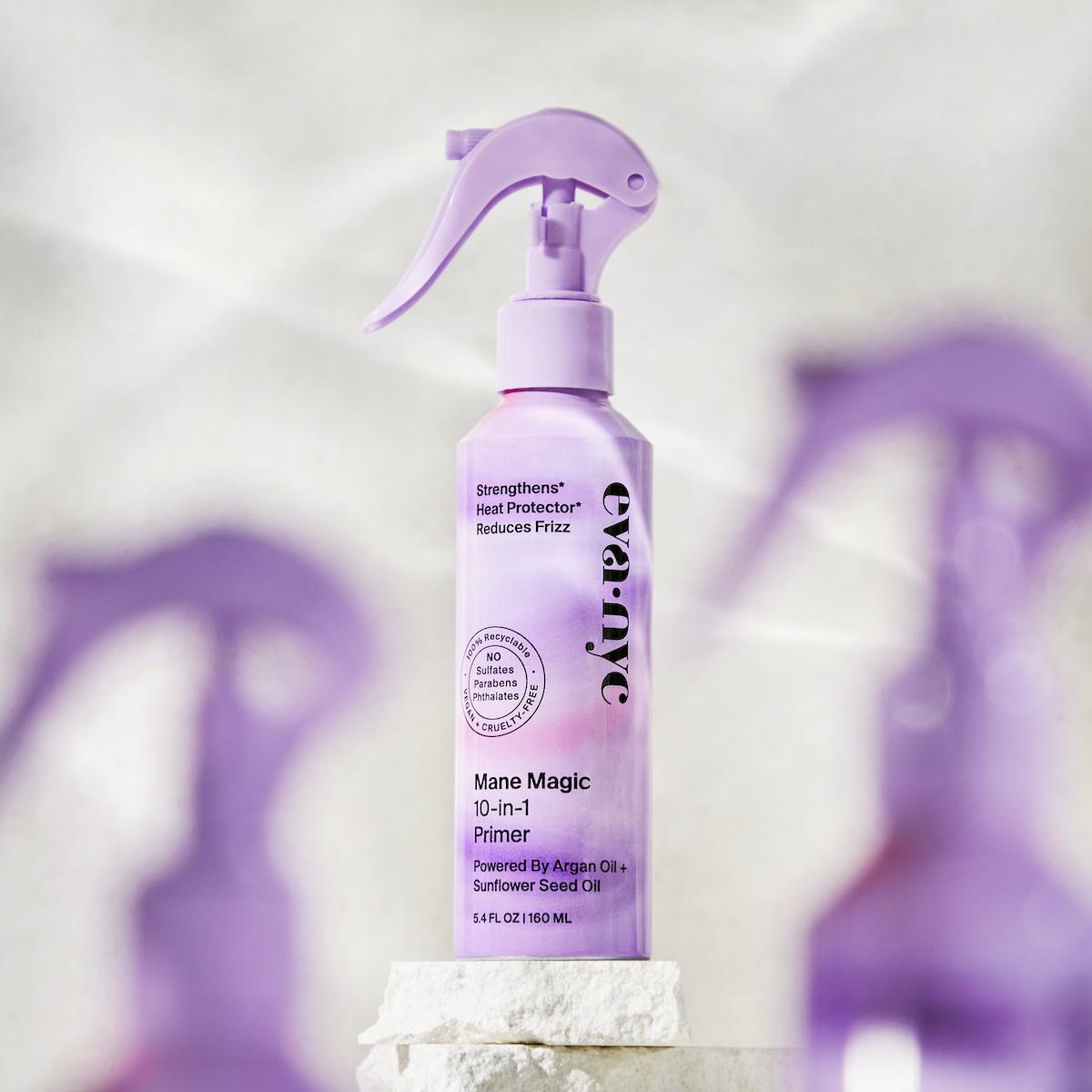How This Affordable Hair Care Brand Ditched Plastic for Aluminum (Exclusive)
Eva NYC's hair care product range has completely transitioned from plastic to aluminum packaging, and still manages to be an affordable, zero-waste option.
Updated Feb. 9 2021, 6:29 p.m. ET

Eva NYC is quitting plastic — and making it easier for you to do the same. Nine years after its founding, the affordable, cruelty-free, and vegan hair care company transitioned its entire hair care product range from plastic to aluminum packaging, a feat that brands with larger capital and resources have shrugged off as too challenging and expensive.
To learn more about Eva NYC making its hair care packaging zero-waste, how other brands can make similar moves, and more, Green Matters recently caught up with Jane Moran, Eva NYC’s Brand Vice President.
Hair care brand Eva NYC just went completely plastic-free.

Eva NYC is a Brooklyn-based, mid-sized hair care company, part of independently-owned parent company Heat Makes Sense. Eva NYC largely sells direct-to-consumer via its website, but can also be found at stores like Target, Ulta, and Anthropologie.
When Jane Moran joined Eva NYC October 2019 after nearly two decades in beauty marketing, the Eva NYC team was a few months deep in the ideation phase, trying to think of how to make the company more environmentally sustainable.
“At a conference earlier that year, I was actually told that it wasn't possible for mass market brands to be truly sustainable,” Moran tells Green Matters on a Zoom call. “I knew that just wasn’t an excuse. And I thought if we really worked hard enough, and even if it wasn’t already being done, then we could definitely make it happen.”

The Eva NYC team expected the process to take much longer than it did, but on Feb. 1, 2021, about a year and a half after the initial discussions began, Moran estimates, Eva NYC unveiled the redesign. As it stands, Eva NYC’s packaging is 93 percent plastic-free, with the remaining 7 percent accounting for things like plastic pumps, which can be recycled via Eva NYC’s TerraCycle partnership. (And Moran is hoping to find a way to make pumps out of aluminum in the future.)
“When we first started discussions about moving to aluminum and reinventing our packaging, and redesigning it, we actually all thought it would take much longer, but honestly that just wasn't an option,” Moran tells Green Matters. “We really feel our planet doesn't have time to sit around and wait for years, so we researched all of the options.”
Once they decided on aluminum, the Eva NYC team did research on consumer perception of the material, as well as product tests to make sure aluminum packaging kept products safe, shelf stable, and still looked great. The bright and colorful packaging Eva NYC is known for remains intact, and the company now prints labels directly onto the aluminum containers, similar to a soda or beer can.
Aluminum can be recycled infinitely, unlike plastic.

Using aluminum is a bit more expensive than plastic — but not when you consider the environmental costs. A 2017 study found that only 9 percent of plastic produced before 2015 has been recycled — and downcycled at that, as plastic can only be recycled a few times before losing quality.
In contrast, according to the Aluminum Association, aluminum cans specifically are the most recycled beverage package in the U.S., having been recycled at a rate of 46.1 percent in 2019; additionally, 75 percent of all U.S.-produced aluminum is still in use to this day. Plus, aluminum can be recycled infinitely without losing quality.
Aluminum packaging is not the only solution eco-conscious companies have rolled out in recent years — some companies sell products via refill systems in reusable, returnable containers, while many others have rolled out concentrated refills that turn into products when combined with water at home.
Finding zero-waste hair care products can be a challenge.
When shopping for basic zero-waste hair care products, shampoo bars and conditioner bars are popular choices. But in terms of specialized products like dry shampoo, styling creams, hair masks, and curly hair care, finding plastic-free options is difficult (and often expensive). By making its entire product range plastic-free, Eva NYC is filling a gap many zero wasters have surely noticed in the hair market.
Eva NYC’s prices are mid-range — the Invisible Dry Shampoo is $12, the Therapy Session Hair Mask is $15, and the signature Mane Magic 10-In-1 Hair Primer is $12. All Eva NYC products are cruelty-free, vegan, and free of parabens, phthalates, and sulfates, though some of the brand's ingredients may still cause concern for zero wasters. The EWG Skin Deep Cosmetics Database rates products based on their safety for humans and the environment on a scale of 1 (the safest) to 10 (the worst), and Eva NYC products have scored 4s, 5s, 6s, and 7s from EWG, with potentially worrisome ingredients including fragrance, methylisothiazolinone, and ethylene glycol.
(UPDATE Tuesday, Feb. 9, 2021, 6:30 p.m. ET: A representative for Eva NYC says that EWG's current ratings evaluate old formulations, and the brand is working on updated ratings.)
That said, Eva NYC sources most of its ingredients and manufactures most of its products domestically in the U.S., which is currently the only market the company sells to; some of its products are also manufactured in Canada and Israel.
“We fully vet all of our suppliers prior to working with them and ensure they follow all the standard safety and labor laws and required manufacturing certifications,” Moran claims, adding that Eva NYC’s current goal is to become a Certified B Corporation. “Sustainability is part of that supply chain, really trying to see what we can do by producing as much as possible in the U.S.”
Why don’t more hair companies go zero waste?
For most companies, the answer comes down to money — virgin plastic is simply the cheapest packaging material out there. But Moran thinks companies of all sizes are capable of taking responsibility for the environmental impact of their product ranges, even though she admits that doing so is a huge undertaking.
“I don't think it’s easy for any company to change out their packaging, but I don’t think that should stop us from trying,” Moran says. “We can’t let the responsibility just rest on consumers, so companies can’t keep producing without thinking about the environmental impact … I think we've shown that it’s possible to do it in a very sustainable way.”
Moran also has advice for other business leaders with similar goals. “Do the research, look up what’s available, and work extremely closely with your cross-functional teams to find the right solution. And also, speak to your consumers about what they’re looking for,” she says. “And then educate… we need to keep educating our customers [about] how making these small changes in terms of their purchasing can have a really big impact on the environment.”